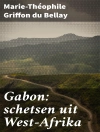In ‘A Voyage to Abyssinia, ‘ Jerónimo Lobo, a Portuguese Jesuit missionary, recounts his remarkable journey through 17th-century Ethiopia. Written in a lively and engaging prose style, the book combines elements of travel literature and anthropological observation, immersing readers in the physical landscape and cultural tapestry of Abyssinia. Lobo’s keen eye for detail and his reflections on the religious and social practices of the Ethiopian people offer valuable insights into a society often viewed through the narrow lens of Western perspectives of the time. The work serves not only as a travelogue but also as a significant historical document, illuminating the complex interplay between European missionaries and African civilizations during the Age of Exploration. Jerónimo Lobo, having spent several years in Ethiopia, was deeply influenced by the region’s rich history and diverse cultures. His experiences as a missionary shaped his understanding of both the Ethiopian Orthodox Church and the broader socio-political context of the region. This book emerges from his dedication to bridging cultural divides and his desire to present a nuanced portrayal of Ethiopia to an audience far removed from its realities. Readers seeking a captivating glimpse into a world rarely documented in the era will find ‘A Voyage to Abyssinia’ both enlightening and enriching. Lobo’s blend of observation, adventure, and introspection invites contemporary audiences to reconsider historical narratives and fosters a greater appreciation for the cultural exchanges that have shaped our world.
عن المؤلف
Jerónimo Lobo (1593–1678) was a Jesuit missionary and explorer whose work, ‘A Voyage to Abyssinia’, has given significant insights into the geography and culture of 17th-century Ethiopia. Born in Lisbon, Portugal, Lobo joined the Society of Jesus in 1604 and was later sent to India and Ethiopia as a missionary. Although his evangelical mission faced many difficulties, Lobo’s contributions were more far-reaching in the realm of literature and exploration than religious conversion. His detailed observations of the lands he visited, customs, languages, and political systems are preserved in his narrative. ‘A Voyage to Abyssinia’, Lobo’s seminal work, was posthumously published in 1735 and has been critical for historians and scholars interested in early modern Ethiopia and the activities of Jesuits in that region. His writings are characterized by a straightforward literary style suffused with a sense of adventure and keen anthropological observation. This style has provided an authentic glimpse into the interactions between Europe and Africa during a pivotal era of cultural and political change. Lobo’s work has often been praised for its accurate depictions and has served as a valuable historical document for understanding the context of his times.












